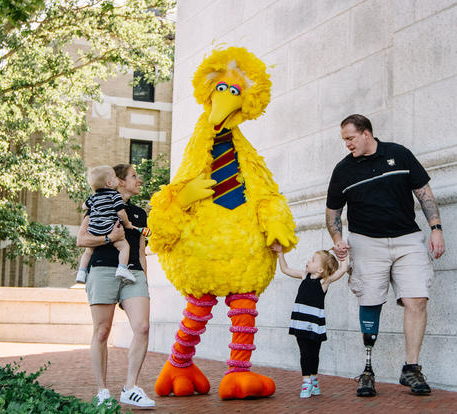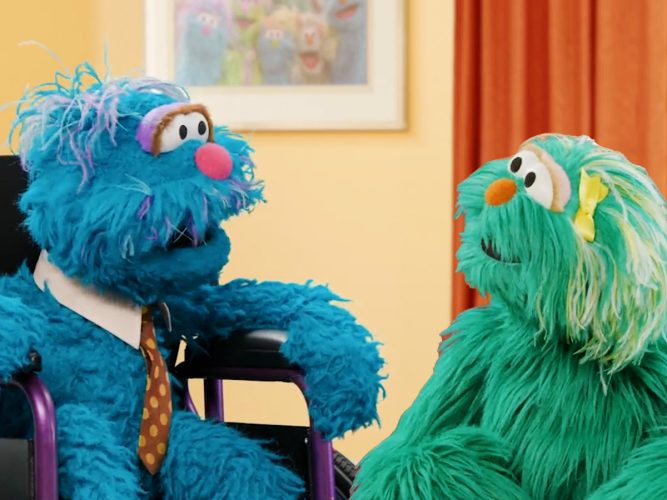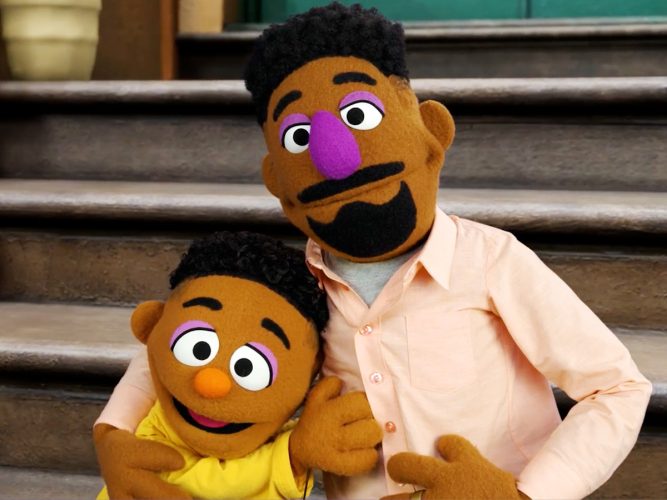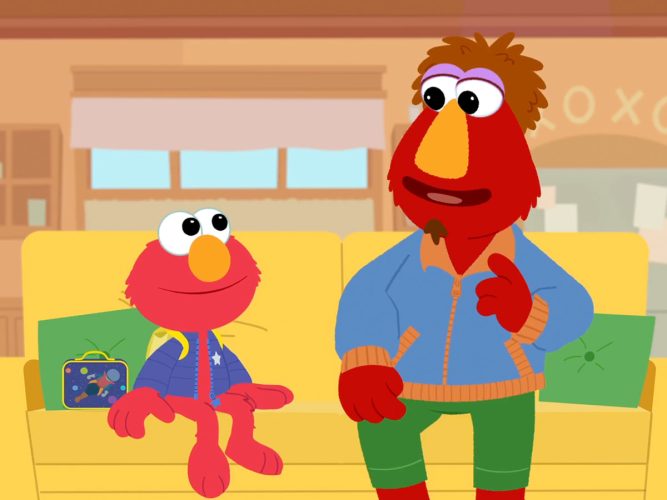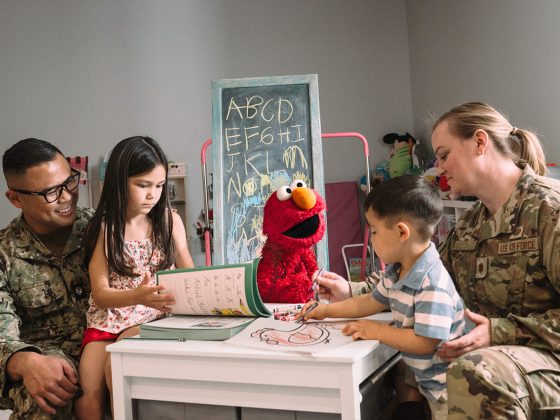
Military Families Resources
No two children are the same. And no two parents are the same, either. Not everything about being a parent is straightforward, and sometimes it can be challenging to find the motivation to keep trying new ideas.
Elmo and his parents, Mae and Louie, are a military family on Sesame Street, and they know that military life comes with unique challenges and opportunities. Leave it to Mae to show us how make room for “me time” even — or especially when — life is full, while Louie and Maggie (Abby and Rudy’s Mom) offer creative approaches to common scenarios using one of the most important ingredients of all: showing a little kindness to yourself.
When you’re trying hard to do the best for your family, it’s easy to lose track of taking time for yourself. Here are a few ideas for self-care to try (and try again in new ways!) that can help build family connectedness and a stronger, mindful connection to yourself!
Taking ‘Me Time’ Is OK
In military families, it can be a struggle to put yourself first, especially when things change unexpectedly, as they often do. It can help to think about the positive example you are setting for a child watching you.
Balancing self-care as you take on extra responsibilities isn’t easy, but it is important. In “Me and Us Time,” Elmo watches Mae prioritize her emotional well-being by taking an exercise class and learns that, when family members take care of themselves, the whole family’s emotional well-being gets a boost.
If coming up with ways to spend your alone time feels hard, check out this page to get some ideas.
It’s OK to Reset
If you’re pulled in many directions, with a lot on your plate, it’s normal to feel overwhelmed! But often when we feel that way, we struggle to think clearly and rationally. Taking a moment to reset — with a deep breath or positive self-talk — can help get our minds back into “thinking mode.”
Taking a moment for yourself also sets an example of self-kindness to help build resilience skills in your little ones. Acknowledging your feelings — even the unpleasant ones — and finding new ways to cope with them is worth the effort.
Root for Maggie as she notices her frustration build up, both with the weeds overtaking her garden and when her children have a bit more energy than she was ready for in “Reset to Respond.”
It’s OK to Get Creative with Transitions
Transitions can lead to big, uncomfortable feelings. When at the park, Louie and Maggie have a hard time getting Abby and Elmo to listen and move to the next part of the day. Thanks to Maggie’s playful suggestion and the friends’ persistence together, everyone not only moves on, but they’re excited about it!
Watch as Maggie and Louie test out the “What If” game to help get Elmo and Abby moving towards the park exit.
Then, try this tip sheet, “Transition Tipsheet for Caregivers,” for times when moving on includes moving through big feelings.
Try Until You Find What Works For You
While not every idea above will work perfectly for you, trying new things helps cultivate flexible thinking and model a can-do attitude for your little ones.
We want to help children grow into resilient, caring adults — and there’s no better way to show them how than to practice persistence yourself. Remind children that with each try comes a lesson to learn. Talk about all the ways you’re learning and growing resilient together!
Trying can be quite… well, trying. But every new idea you attempt gets you closer to finding the tools that help you be the kind of parent you want to be for the little ones in your life.
